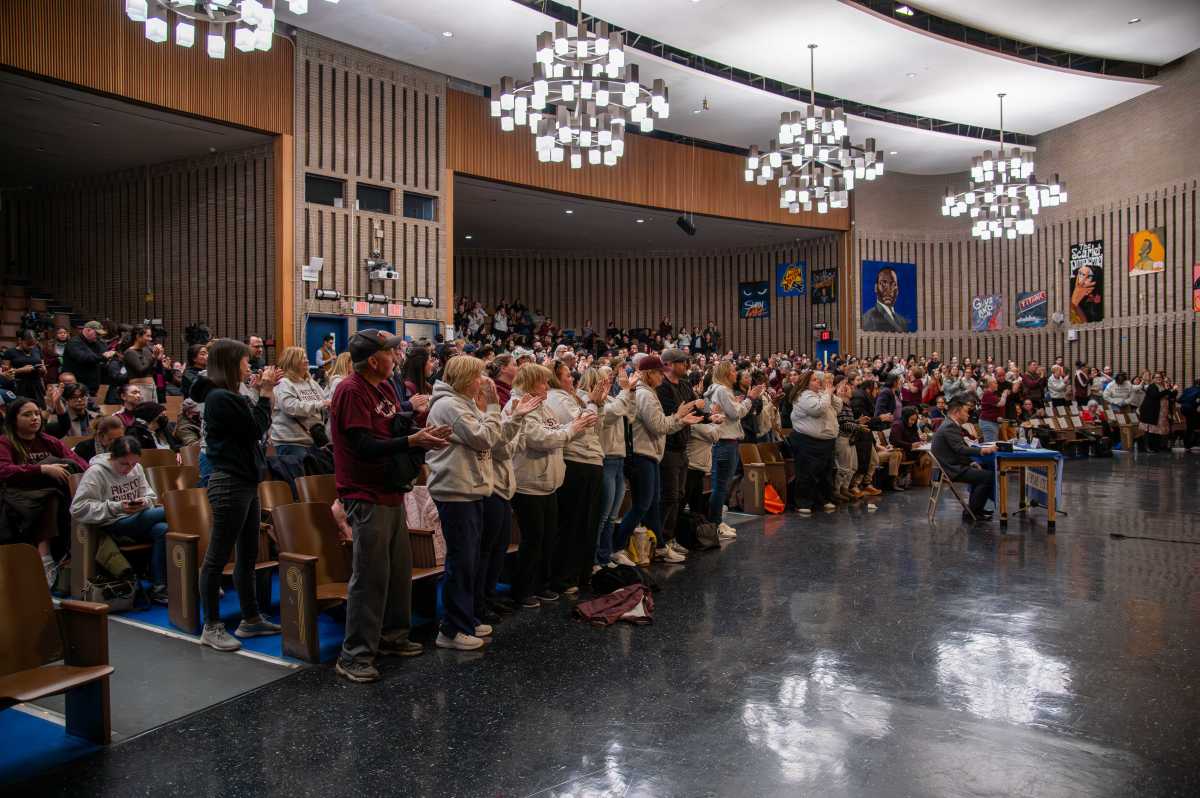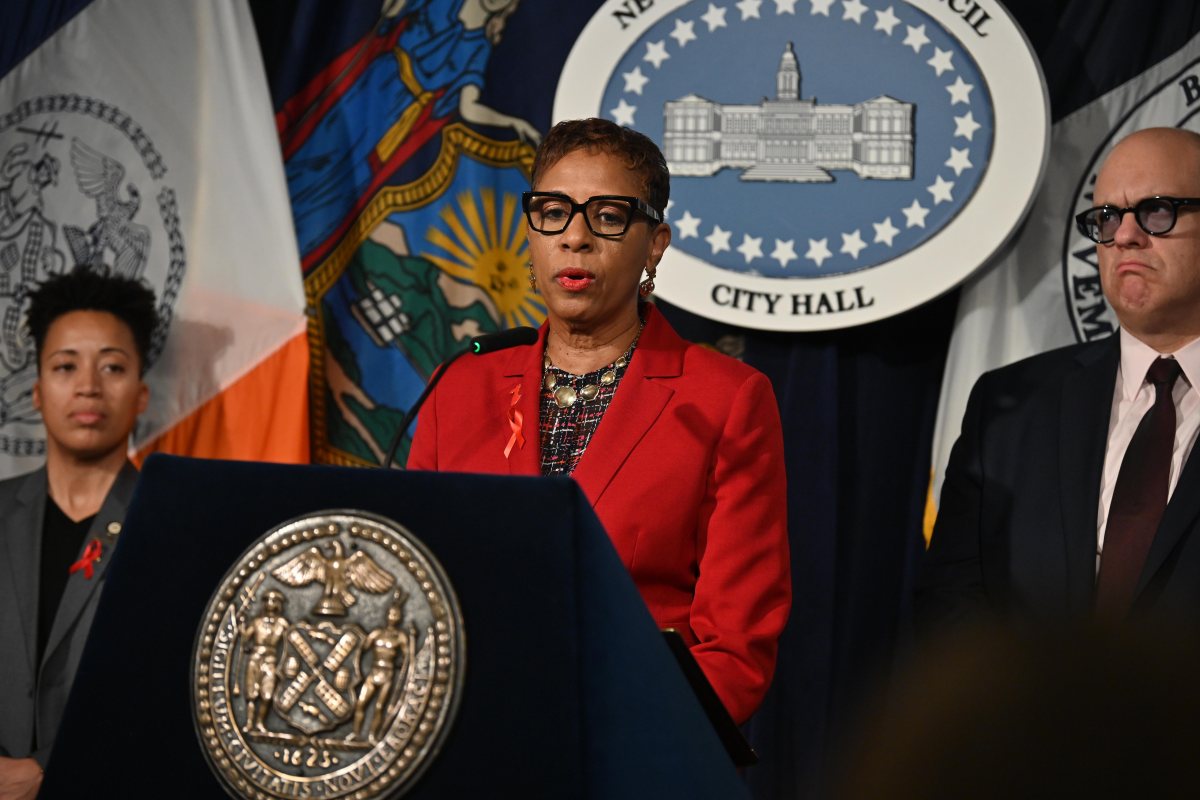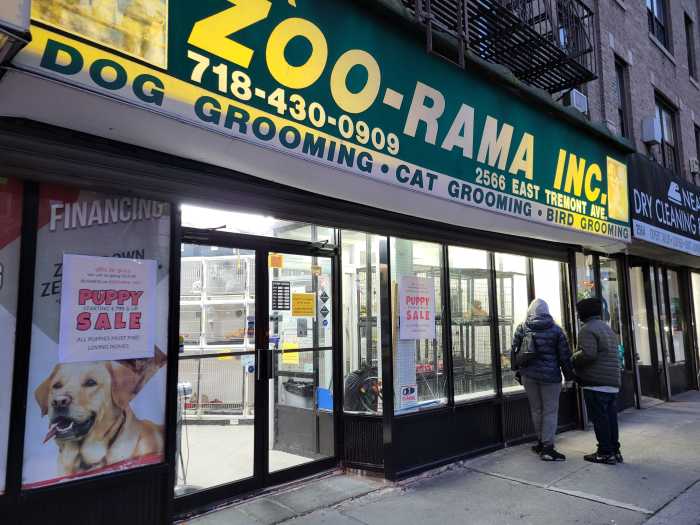Hundreds of people flooded the auditorium of Lehman High School Tuesday night, while hundreds more watched online as New York State Attorney General Letitia James listened to over three hours of testimony from generations of women who are fighting desperately to save their beloved Preston High School, an all-girls Catholic school in Throggs Neck set to close in June.
Current students, parents, faculty and alumni told James that “The Bronx needs Preston,” at times becoming emotional while describing the friendships, support, leadership skills, academic success and moral compass they all say they owe to Preston High School.
The hearing follows months of rallies, petitions and organizing from the community in Throggs Neck and an escalating dispute with the school’s landlord, the Sisters of the Divine Compassion. The Sisters’ leadership team – who also make up 50% of Preston’s Board of Trustees – did not attend the hearing, but noted in a statement that it came to the decision to close the school due to declining enrollment, financial instability and aging infrastructure.
Among those who spoke was Katie Ann Gannon, a history teacher at Preston who began her position this academic year but whose ties to the school run deep. She grew up hearing her mother’s stories about attending Preston in the 1980s, later becoming a student herself and graduating in 2019.
“Preston is thriving,” Gannon said, rejecting the board’s claims that the school is no longer viable. “It’s not just a school, it’s a feeling,” she added. “You feel it in every hallway, every classroom, every parent, every alum who begins with pride saying that they went here.”
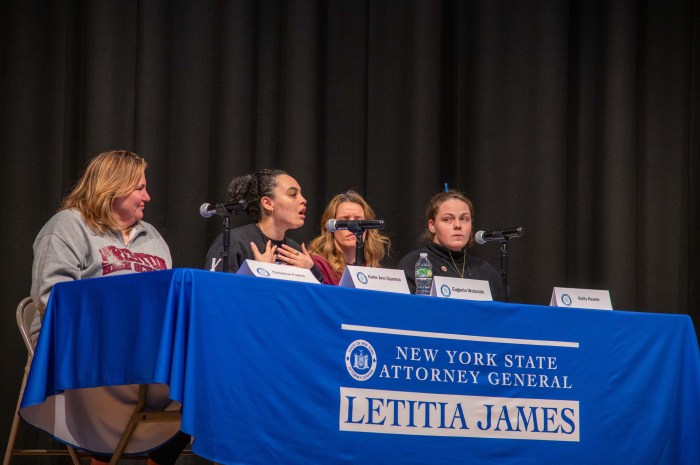
The Attorney General’s office oversees nonprofit organizations like the Sisters of the Divine Compassion in New York to ensure fiscal responsibility, proper governance and that they remain true to their charitable missions. Addressing the packed auditorium James emphasized the importance of transparency and said that boards should be communicating “clearly and frequently with their constituents.”
“We want to make sure that they exercise appropriate care in their decision making and consider the impact of their decisions on the people they serve,” James said.
Throughout the night, advocates for Preston High repeatedly said they felt blindsided by the February announcement to close the school, claiming they had never been made aware of any concerns from the Sisters about declining enrollment, infrastructure issues, or financial instability. Twenty-five people testified over the course of the evening.
The Sisters, no longer wanting to be landlords and advancing in age, initially agreed to sell the property after lengthy negotiations to Preston High School. However, a former board member said that a dispute that delayed the school’s first payment led the Sisters to walk away from the deal.
In March, the school community was hopeful that it had found a way to stay open when elected officials helped negotiate an offer to purchase the school through Bally’s Foundation, the charitable arm of Bally’s Corporation that operates the golf course at Ferry Point Park and hopes to build a casino and resort at that location.
Bally’s Foundation offered to buy the school for the Sisters’ asking price of $8.5 million and contribute an additional $1.5 million to repair any “aging infrastructure.” The foundation also agreed to lease the property to Preston for 25 years at $1 per year, with the option for the school to buy it in the future.
But the Sisters rejected the offer in the eleventh hour, with seemingly no explanation and announced that their decision to close the school was final.
But the women of Preston High School, and the community that supported them pushed on, contacting James’ office and asking her to look into the decision. Their efforts led James to hold Tuesday’s hearing.
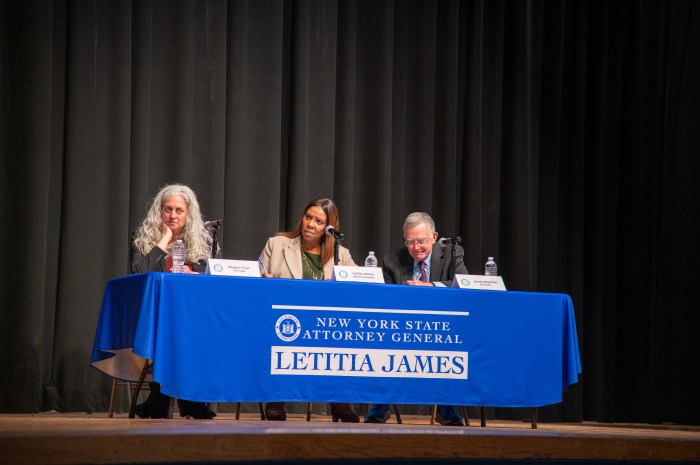
School administrators disputed the claims of declining enrollment, explaining that the school’s capacity was reduced after repurposing classrooms for one-on-one instruction and a media lab. They said that in reality, enrollment is close to 100% of capacity and growing.
Preston High School Principal Jennifer Connolly told James that the Sisters listed “changing demographics” as one of their reasons to close the school and questioned what the term was referring to and why it would even matter.
The Sisters have not elaborated about what exactly the term was referring to, but several people who testified connected “changing demographics” to race. Emily Marino, who graduated in 2011, said that the diversity at Preston High School was a strength.
“Sisters of Divine Compassion listed changing demographics as one of the reasons for the closure,” Marino said. “The Bronx has experienced significant ethnic diversification through the Borough’s history, and that should be commended by the Education Board, not condemned.”
Andrea Donkor, a school alumni who helped organize a group of Preston graduates called “Preston Forever,” told the Bronx Times that “changing demographics” was not a justifiable reason to close the school, calling it a “superfluous point.”
“ Schools are supposed to serve the communities within which they lie and that is what Preston is doing,” Donkor said. “Its enrollment is reflecting the changing demographics. It is not an indication of change in the academic rigor or capability of the young ladies that come through its doors.”
The students who shared testimony told James that other schools couldn’t offer them the same opportunities, excellent academics and financial assistance as Preston and that transferring so late in their high school years would derail their paths to a future they’d been working hard to achieve.
Cielo John, Junior Class President at Preston High School and member of its championship winning volleyball team, told the Attorney General that closing Preston High School would not only rob her of the opportunity to become Student Body President next year, but that it would also break apart a team that had become so much more than that.
“We will lose our family and we would most likely not be considered in joining the same sport at a different school, as other young women have been working for those spots at their own school since they started,” John said. “It is not fair to make those ladies pay for our own misfortune, but it is certainly not fair that we have to be put in a position to fight for their spots in the first place.”

